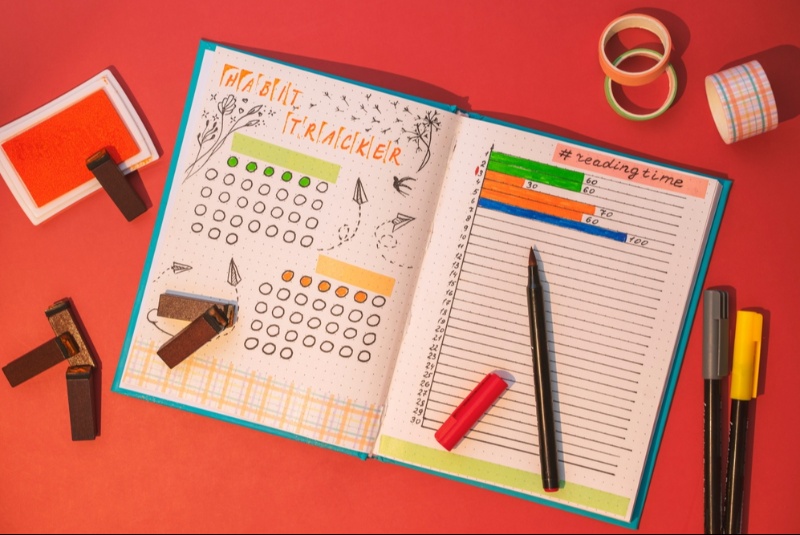In today's fast-paced world, it's easy for children to get lost in the whirlwind of technology, social pressures, and information overload. As parents, we have the responsibility to help our kids develop mindfulness – the ability to be present, aware, and connected to themselves and others. In this article, we will explore some practical parenting tips to raise mindful kids who are not only in tune with their own emotions but also empathetic towards others.
- Encourage Emotional Expression
It's essential for children to learn how to express their emotions in a healthy manner. Encourage your child to speak openly about their feelings, whether they're happy, sad, angry, or scared. Use age-appropriate language to explain that emotions are a natural part of life and should never be suppressed. Active listening, empathy, and validation are key components in fostering emotional expression, as they create an environment where your child feels safe and understood.
- Cultivate Gratitude
Gratitude is a powerful tool for promoting mindfulness. Teach your kids to appreciate both the big and small things in life, and to aspects in every situation. Develop a daily gratitude practice, such as listing three things they are grateful for each day. This can be done during meal times, before bedtime, or any other suitable moment. By cultivating gratitude, children learn to focus on the present and acknowledge the good in their lives, thus fostering a positive mindset.
- Introduce Mindful Breathing and Meditation
Mindful breathing and meditation are excellent techniques to help children develop self-awareness and focus. Introduce these practices by guiding them through simple exercises, such as taking deep breaths or counting breaths. You can also use guided meditation apps or recordings specifically designed for kids. These activities encourage children to be present, recognize their thoughts and feelings, and develop better emotional regulation.
- Foster Empathy and Compassion
Teaching children to empathize with others and express compassion is crucial in nurturing mindful kids. Encourage them to put themselves in others' shoes and to consider different perspectives. Engage in conversations about various emotions, explain the importance of kindness, and demonstrate empathy through your actions. Additionally, consider involving your kids in community service or charity work, as this can be a practical way to develop their empathetic and compassionate nature.
- Limit Screen Time
Excessive screen time can be detrimental to children's emotional and mental well-being. Set limits on the amount of time your child spends on screens and encourage them to engage in other activities that promote mindfulness, such as reading, playing outdoors, or pursuing creative hobbies. By reducing screen time, you allow your child to develop stronger connections with their surroundings and foster their self-awareness.

- Model Mindfulness
Children often learn best by observing their parents. Practice mindfulness yourself and create an environment that encourages presence and connection. This may include practicing meditation, engaging in regular family meals, or setting aside time for family activities. By modeling mindfulness in your own life, you show your child that it is an important and achievable skill.
- Nurture Resilience
Resilience is the ability to bounce back from setbacks and adapt to change. Help your child develop this crucial life skill by encouraging them to face challenges and learn from their experiences and support, but avoid solving their problems for them. Instead, help them to understand that failure and setbacks are natural and provide opportunities for growth. By fostering resilience, you equip your child with the ability to cope with life's inevitable challenges and to maintain mindfulness even during difficult times.
- Create a Mindful Environment
Establishing a calm and peaceful environment at home can significantly impact your child's ability to cultivate mindfulness. Set the stage for mindfulness by minimizing clutter, reducing noise, and creating designated spaces for relaxation, reflection, and meditation. Incorporate natural elements, such as plants, and use calming colors to promote a sense of tranquility.
- Encourage Unstructured Play
Unstructured play allows children to explore, create, and imagine, all of which contribute to the development of mindfulness. Encourage your kids to engage in free play, whether it's playing with toys, building forts, or making up games in the backyard. This type of play fosters creativity, problem-solving skills, and emotional intelligence, and helps children learn to be present and focused.
- Practice Patience
Finally, remember that cultivating mindfulness is a gradual process. Children, like adults, learn and grow at their own pace. Be patient, supportive, and consistent in your efforts to encourage mindfulness in your child's life. Celebrate their progress and remind yourself that every small step counts towards raising a mindful, compassionate, and resilient individual.
Raising mindful kids is an ongoing journey that requires patience, dedication, and intentionality. By incorporating these practical parenting tips into your everyday life, you can help your child develop the emotional intelligence, self-awareness, and empathy necessary for living a balanced, fulfilling life. As parents, it's our responsibility to nurture our children's mindfulness, not only for their personal growth but also for the betterment of our society as a whole.




